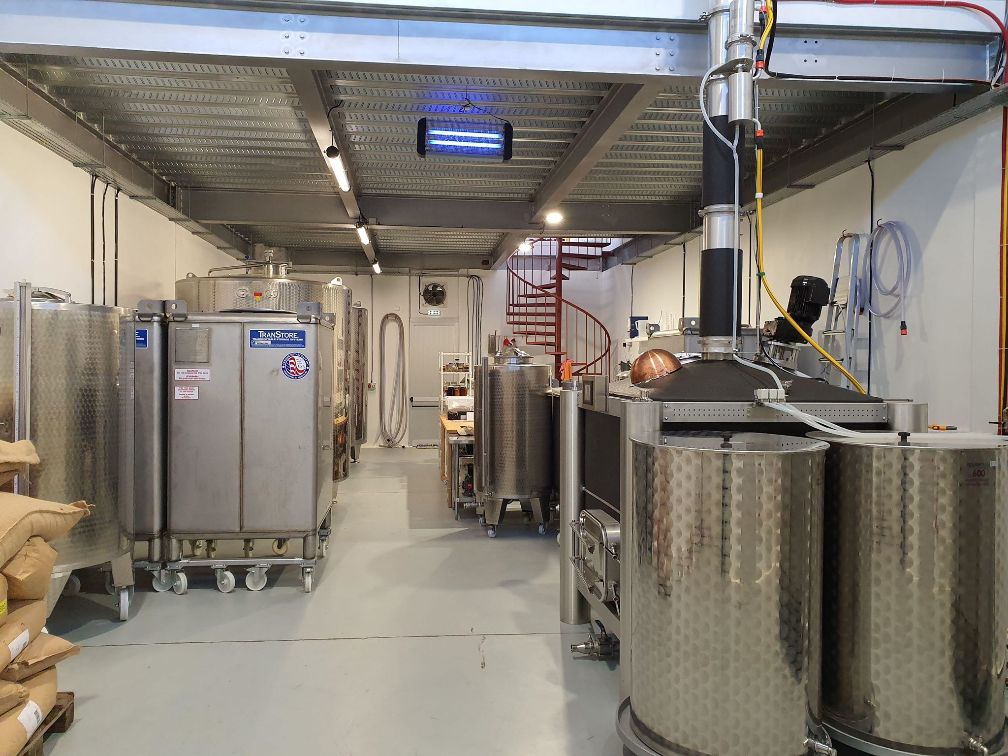When Aris Aristides decided to return to Cyprus in 2016, he was ready to embark on a lifelong dream to craft a premium dry gin, using only native organic and natural ingredients.
He even went as far as to find an indigenous variety of enzymic barley that would have a double purpose – to produce enough of the quality grain to meet his demand to make the popular spirit and to give local farmers an alternative to sell in the open market, which will then be ground and used for flour.
However, little did Aris know that by the time he overcame the usual Cypriot bureaucratic hurdles of starting up a new, innovative enterprise, that his small-batch distillery would be converted to produce medical-grade sanitizers.
Ironically, it was like going back to the roots of the spirit he was so keen to produce that was better known in 12th century Italy as a medical liquor.
He registered the business, Aristides Distilling, secured deals with farmers and set up the large vats and everything else associated with modern-day distilleries.
“I gave a farmer a tonne of the grain I wanted to plant, and he harvested two tonnes. The rest, he is free to sell for his own profit.”
Just as he was about to embark for a license, the coronavirus crisis-hit Cyprus and the rest of Europe sending every commercial activity into lockdown.
His application process was shelved, for now. But Aris did not give up and converted his distillery to produce some 300-400 litres of sanitiser, half of which was offered to a number of charities and nursing homes.
“At a time when this virus is best treated with soap and alcohol, and seeing as 500ml bottles of hand sanitizer were being sold in the Cyprus market for about €18 a pop, I put my decade-long experience from the U.S. to good use and came up with this alternative,” he told the Financial Mirror.
Aris was involved in the spirits production industry in the U.S. in 2008 where he had been working for a company that developed ethanol plants.
By 2012 he became a partner in a small distillery in Missouri and four years later decided with his wife, Marianna, to return to Cyprus, identifying a property in Tseri, Nicosia as the base where they would produce, bottle and market the ‘first Cypriot dry gin’.
“By September 2019, we were ready to go ahead and almost everything was in place. My annual license, worth about €4,000 a year, would be valid from the new year. And so, I waited to start in January 2020. Little did I know that within a few weeks, this crisis would turn everything upside down.”
“Our distillery has a lot of flexibility and can produce a large range of products. This is our advantage, plus our low overheads.”
Making gin with only Cypriot raw materials has a different approach to producing other spirits or wines.
Aris’ plans include developing his own malt from which to produce his own base alcohol at 96% ABV (alcohol by volume).
It will be a ‘dry gin’ meaning no sweetening sugars are added after the distillation process.
“Gin doesn’t need ageing. We use about 10 types of herbs and we will have three different labels.”
For now, Aris is trying to get his dry gin production back on track. He has built up a large stock and is using the current ‘downtime’ to perfect his gin recipes.
What next? Who knows, maybe hand-crafted Cyprus vodka from local potatoes.










